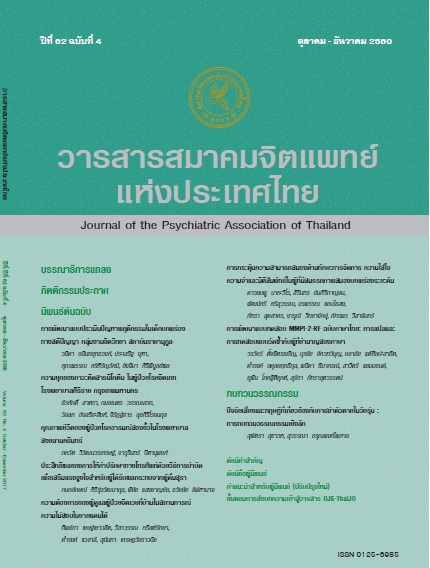ความสัมพันธ์ระหว่างคุณภาพชีวิตของผู้ดูแลกับ ปัญหาพฤติกรรมของเด็กในสถานสงเคราะห์
Main Article Content
Abstract
Objectives : To determine the association between quality of life of caregivers and
behavioral problems of children in foster care.
Methods : This cross-sectional descriptive study obtained data from 113 girls (11-16
years) and 12 caregivers in Rajvithi Home for Girls. The research instruments consisted of
the self-administered questionnaires regarding demographic characteristics of children
and caregivers, The Strengths and Difficulties Questionnaire(SDQ) (self-report) for
evaluating children’s behavioral problems, The World Health Organization Quality of life
Brief-Thai and The Thai Mental Health Indicator(TMHI-15) for evaluating the caregivers’
quality of life. Data were analyzed using percentage, mean and chi-square test.
Results : Among 12 caregivers. All of them had high level quality of life in psychological
aspect, 66.7% had high level quality of life. Among 113 children, the SDQ found
behavioral risk group and behavioral problems in 38 % of the children. The most common
behavioral problems were relationship problems with friends in 43 children (38%). We
also found that the quality of life of caregivers was significantly associated with emotional
problems of children in foster care. (p = 0.044)
Conclusions : The present study found that the quality of life of caregivers was associated
with emotional problems of children in foster care. Therefore, raising quality of life of
caregivers should be considered for health promotion in children and caregivers in
foster care.
Article Details
Articles submitted for consideration must not have been previously published or accepted for publication in any other journal, and must not be under review by any other journal.


